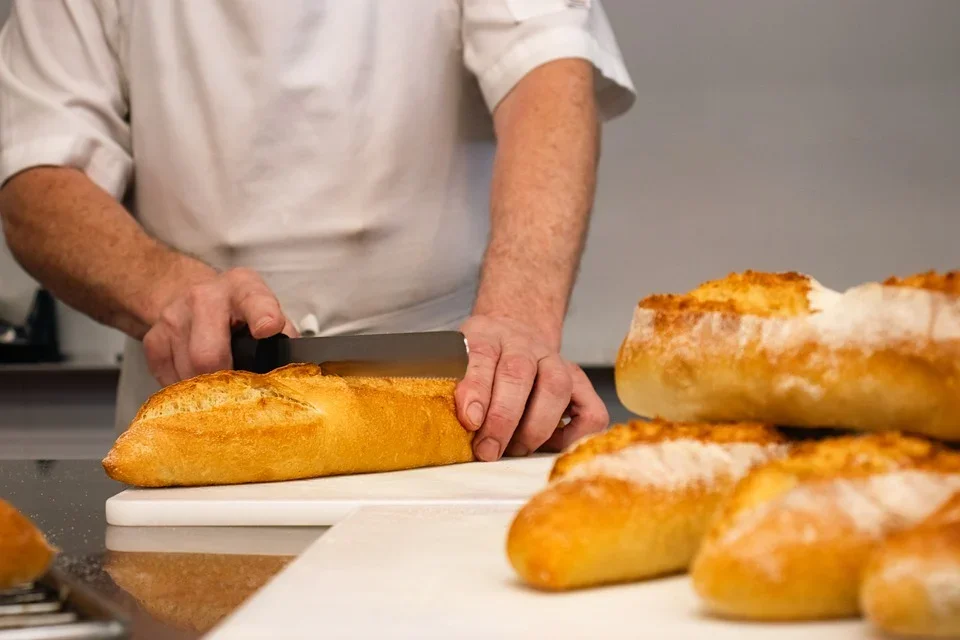5 Essential Tips to Make the Best Bread
Making bread at home can be one of the most satisfying kitchen activities. If you’re just starting or looking to improve your bread-making skills, these five essential tips will help you make the best bread possible. We’ve compared advice from various sources and gathered the most important information for you.
1. Choosing the Best Ingredients
The key to making great bread starts with picking the right ingredients. The quality of your flour, yeast, salt, and water will directly affect the taste and texture of your bread.
- Flour: Bread flour is best because it has more protein (gluten) than all-purpose flour, giving the bread its structure and chewiness.
- Yeast: Fresh yeast gives a better rise, but instant yeast is more convenient. Just make sure your yeast is active and fresh.
- Salt: Fine sea salt is ideal as it mixes well and controls yeast growth while adding flavor.
- Water: Use filtered or bottled water to avoid any chemicals that might affect the yeast.
By focusing on these high-quality ingredients, you’re already setting yourself up for bread-making success. 5 essential tips to make the best bread.
2. Mastering the Dough Preparation
Kneading the dough is an essential step, as it develops gluten, which gives your bread its structure.
- Kneading Tips: Knead the dough for about 10-15 minutes by hand until it’s smooth and elastic. If you’re using a mixer, be careful not to over-knead, as this can make your bread tough.
- Resting the Dough: After kneading, let the dough rest to allow the yeast to ferment. This is called proofing and is crucial for flavor and texture. Try letting your dough proof longer at a cooler temperature for an even better flavor.
Many other guides may not emphasize the importance of giving your dough enough time to rest, but this is a critical step in making the best bread.
3. Controlling the Rise and Bake
How your dough rises and bakes can make or break your bread.
- First Rise (Bulk Fermentation): Let the dough double in size in a warm, draft-free area, which usually takes about 1-2 hours.
- Shaping: After the first rise, gently shape the dough without pressing out all the air, as this can make the bread dense.
- Second Rise (Proofing): Allow the shaped dough to rise again but for a shorter period.
When it’s time to bake, make sure your oven is fully preheated to around 220°C (430°F).
4. Perfecting the Crust and Crumb
5 essential tips to make the best bread that the crust and crumb are what make a loaf truly special.
- Crust: Bake your bread until the crust is a deep golden brown for the perfect crunch. A Dutch oven can help trap steam inside, creating a thicker, crispier crust.
- Crumb: The crumb refers to the inside of the bread, which should be light and airy with evenly spaced holes. This is achieved through proper kneading and proofing.
Focus on these areas to take your bread from good to great.
5. Cooling and Storing Your Bread
Once your bread is baked, you might want to cut into it right away, but letting it cool is vital for the best texture.
- Cooling: Allow your bread to cool on a wire rack for at least an hour. Cutting into it too early can make the inside gummy and undercooked.
- Storing: To keep your bread fresh, store it in a paper bag or bread box.
Proper cooling and storage are often overlooked but are essential steps to making the best bread.
FAQs
1. How long should I knead bread dough?
Knead your dough for about 10-15 minutes by hand or 5-10 minutes if using a mixer. 5 essential tips to make the best bread.
2. What is the best flour to use for bread?
Bread flour is the best because of its higher protein content, which helps create structure in the bread.
3. How can I make my bread crust crispy?
To get a crispy crust, bake your bread at a high temperature (220°C/430°F) and add steam by placing a pan of hot water in the oven or spraying water on the dough. 5 essential tips to make the best bread.
4. Why does my bread come out dense?
Your bread might be dense if you over-knead the dough, don’t let it rise long enough, or handle the dough too much when shaping it.
By following these 5 Essential Tips to Make the Best Bread, you’ll be on your way to baking a delicious loaf every time. Whether you’re new to baking or have experience, these tips will help you refine your process for the best results. Stick to high-quality ingredients, give your dough the attention it needs, and be patient. With practice, your homemade bread will be irresistible article end of 5 essential tips to make the best bread.


its imazing and beautiful article